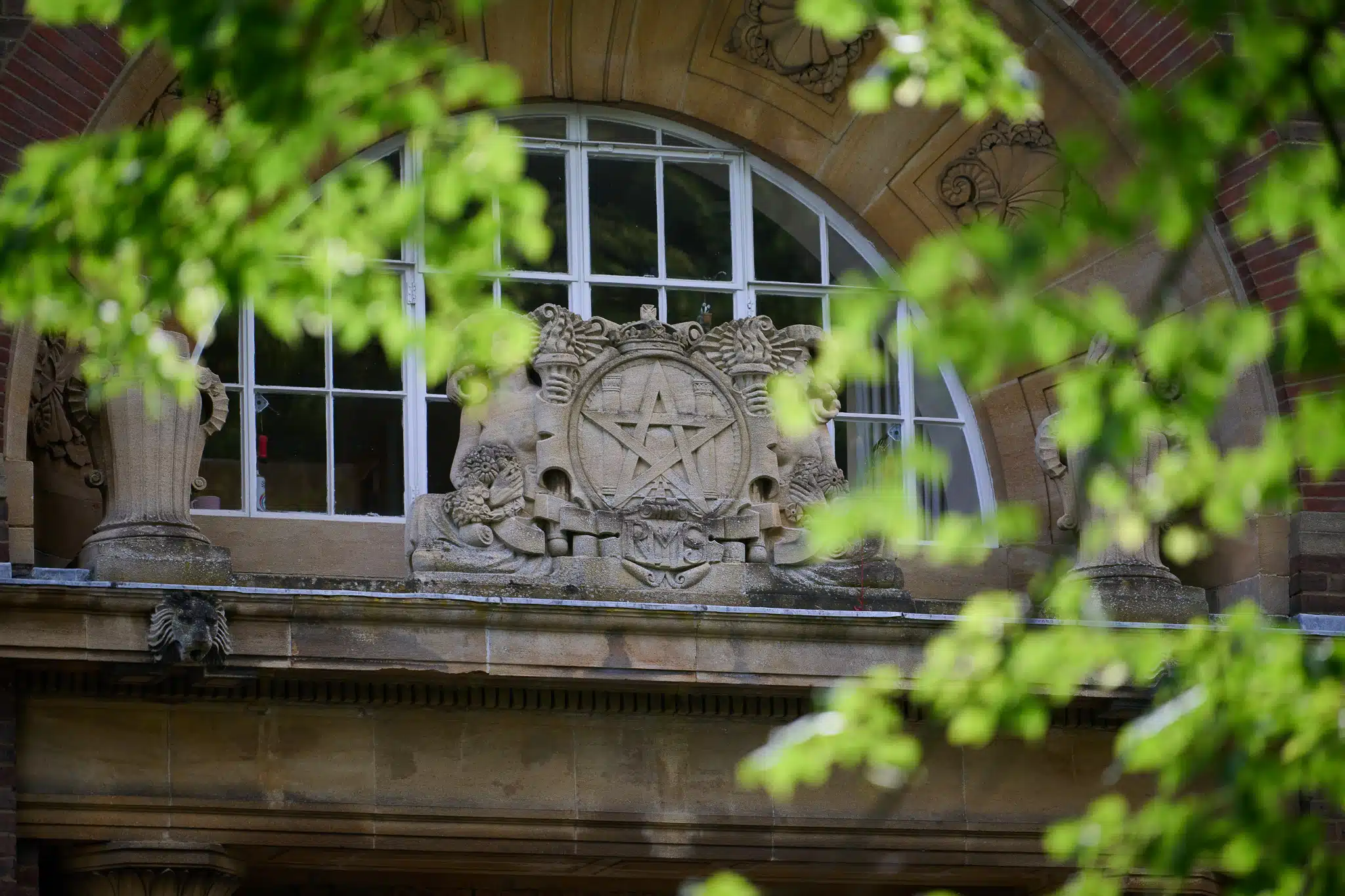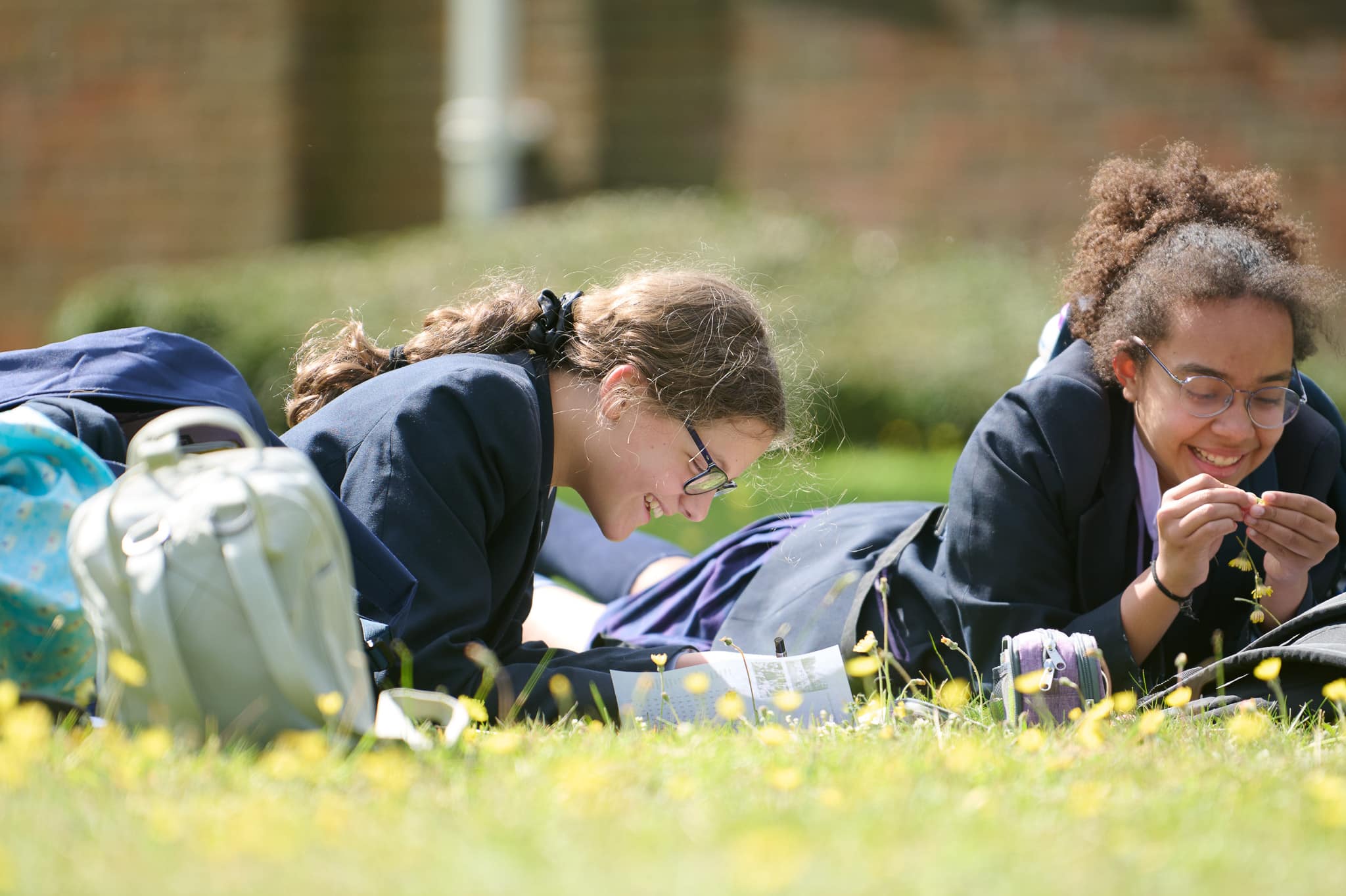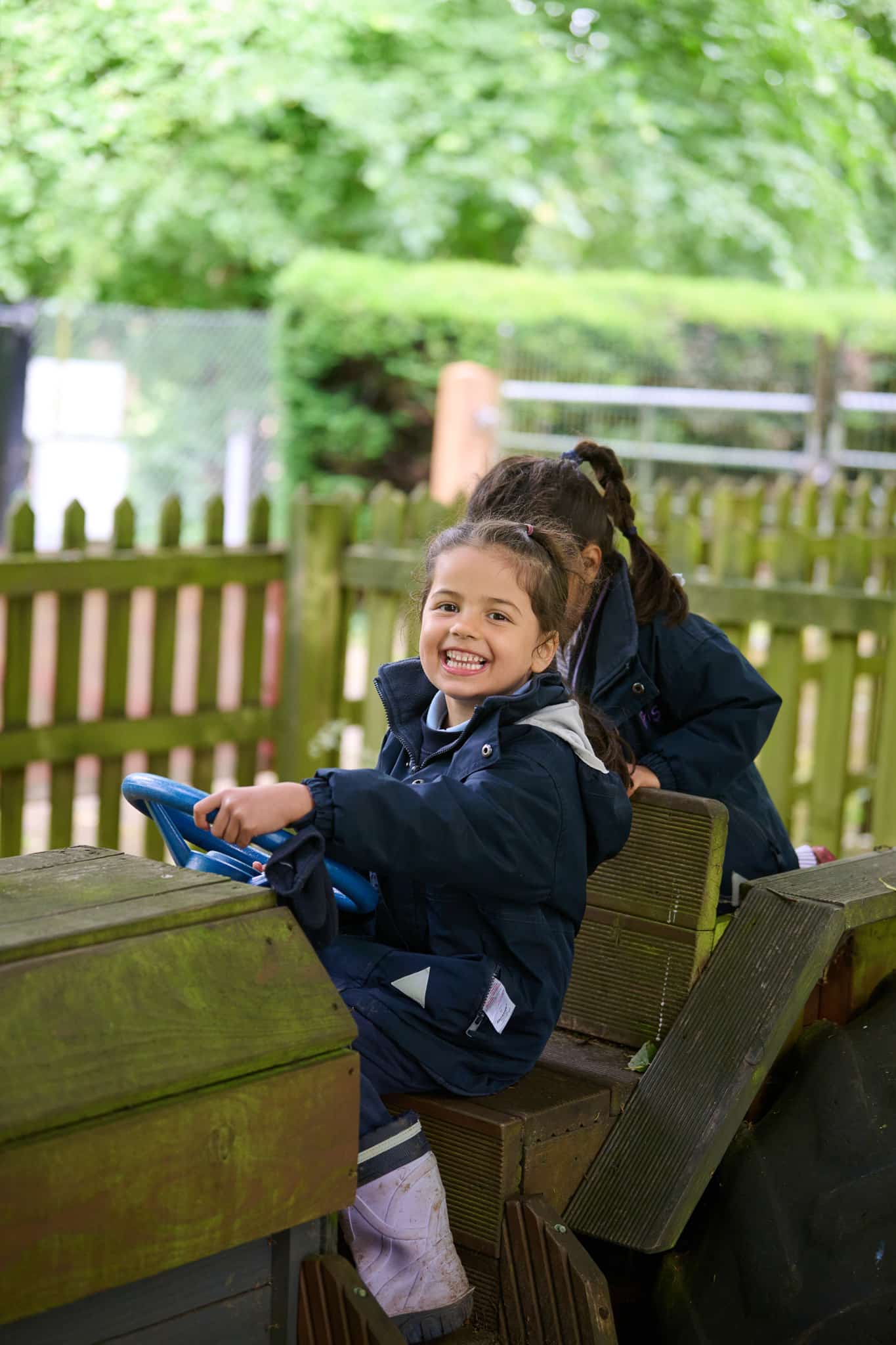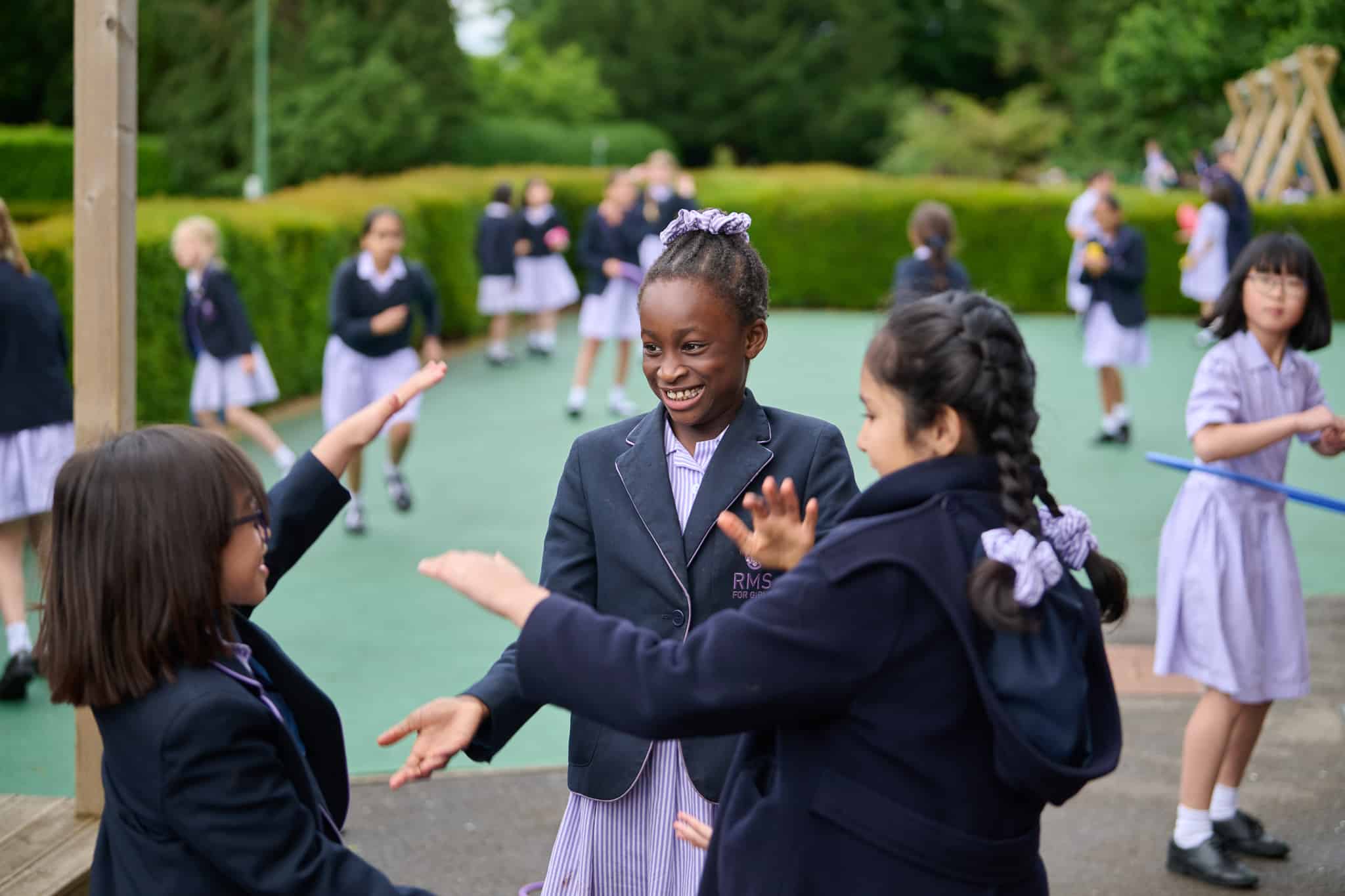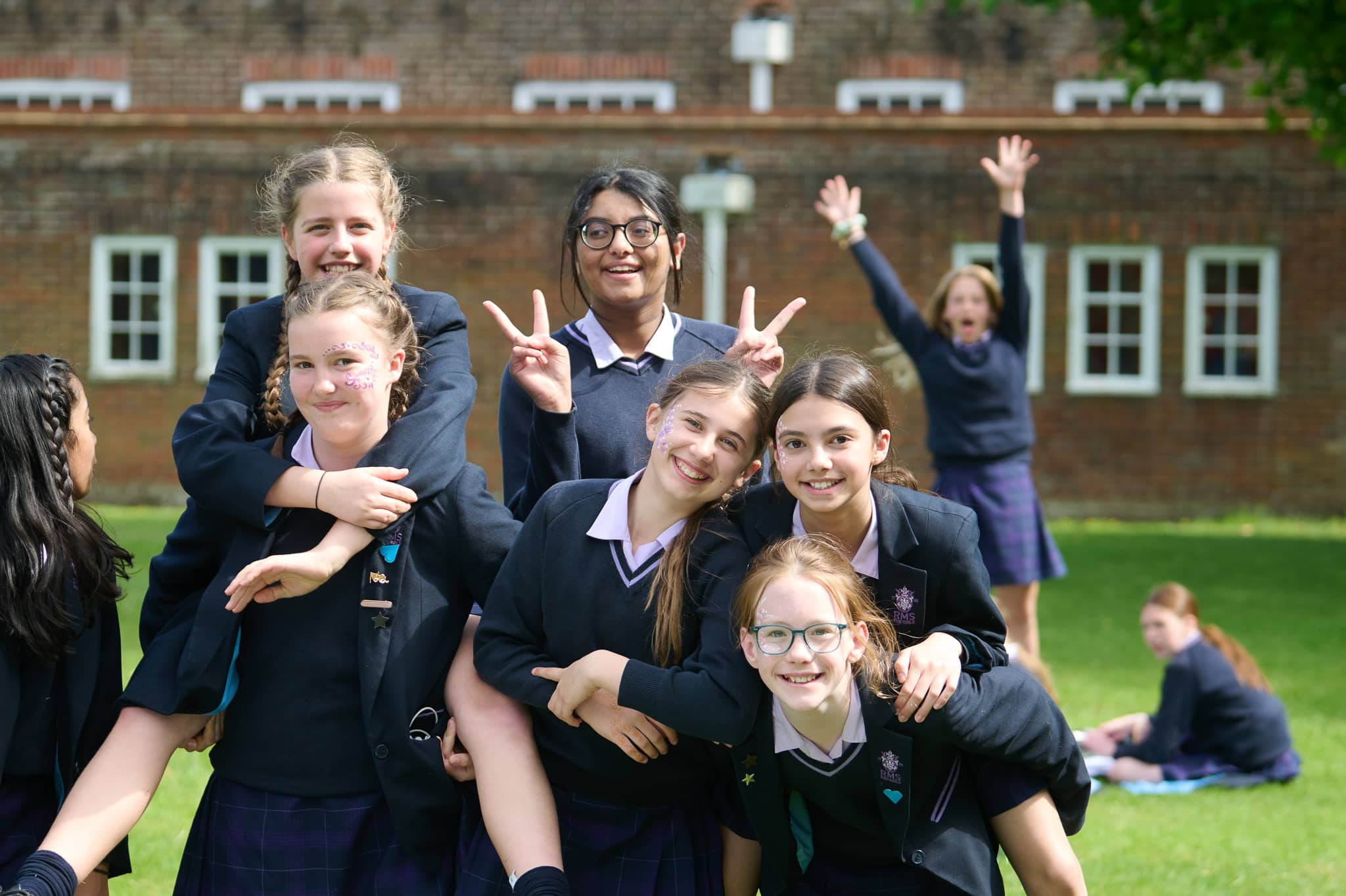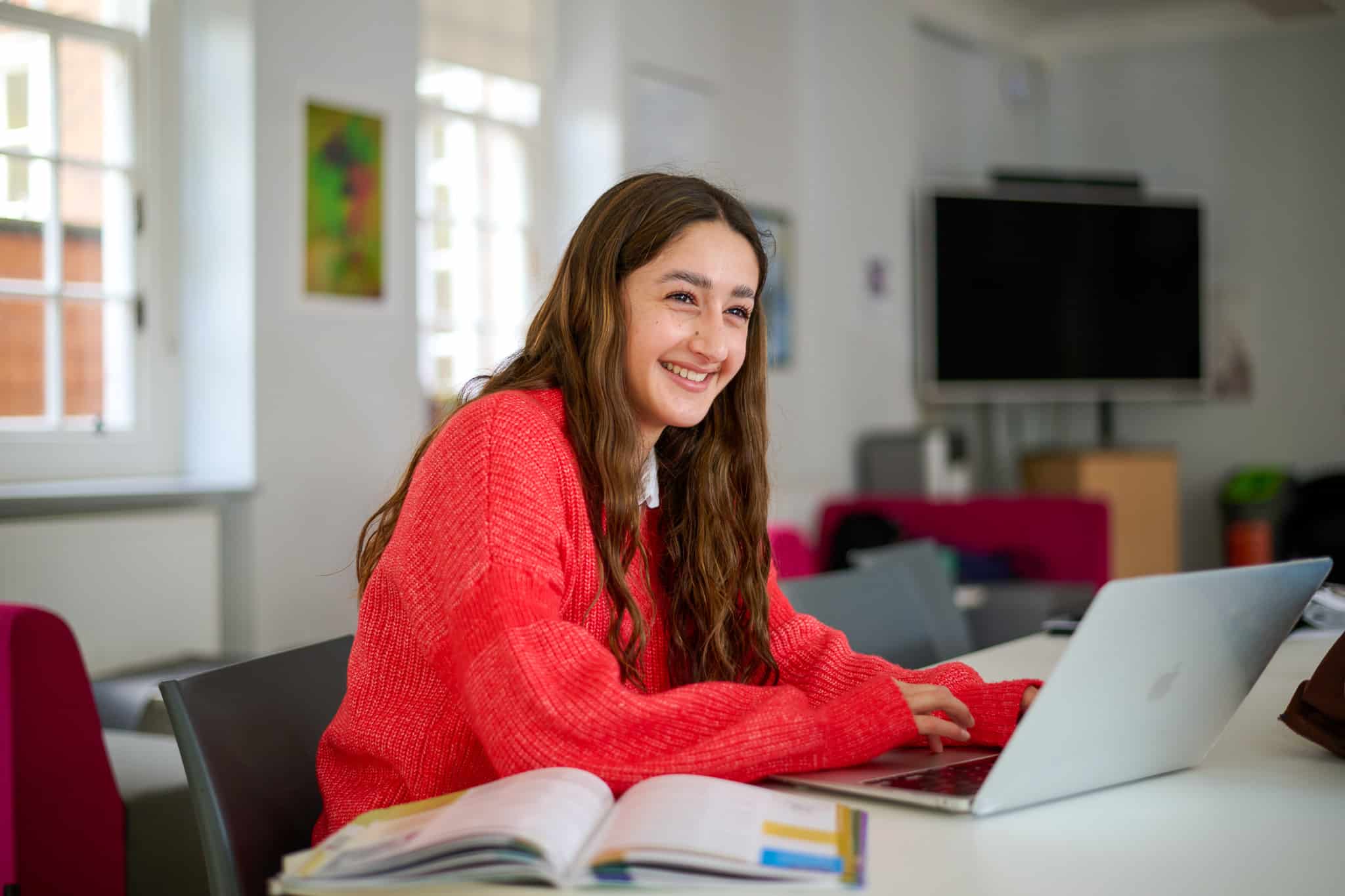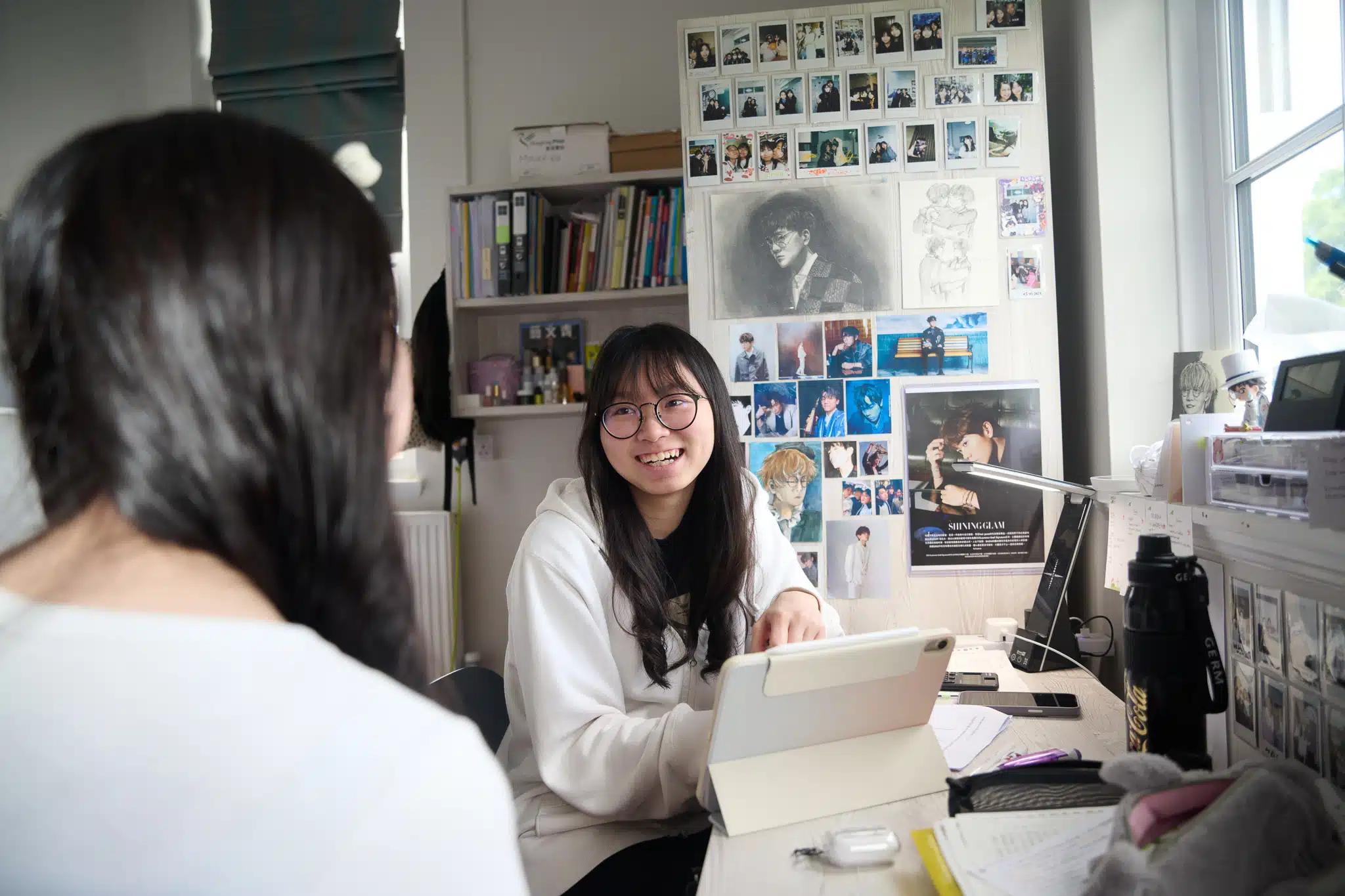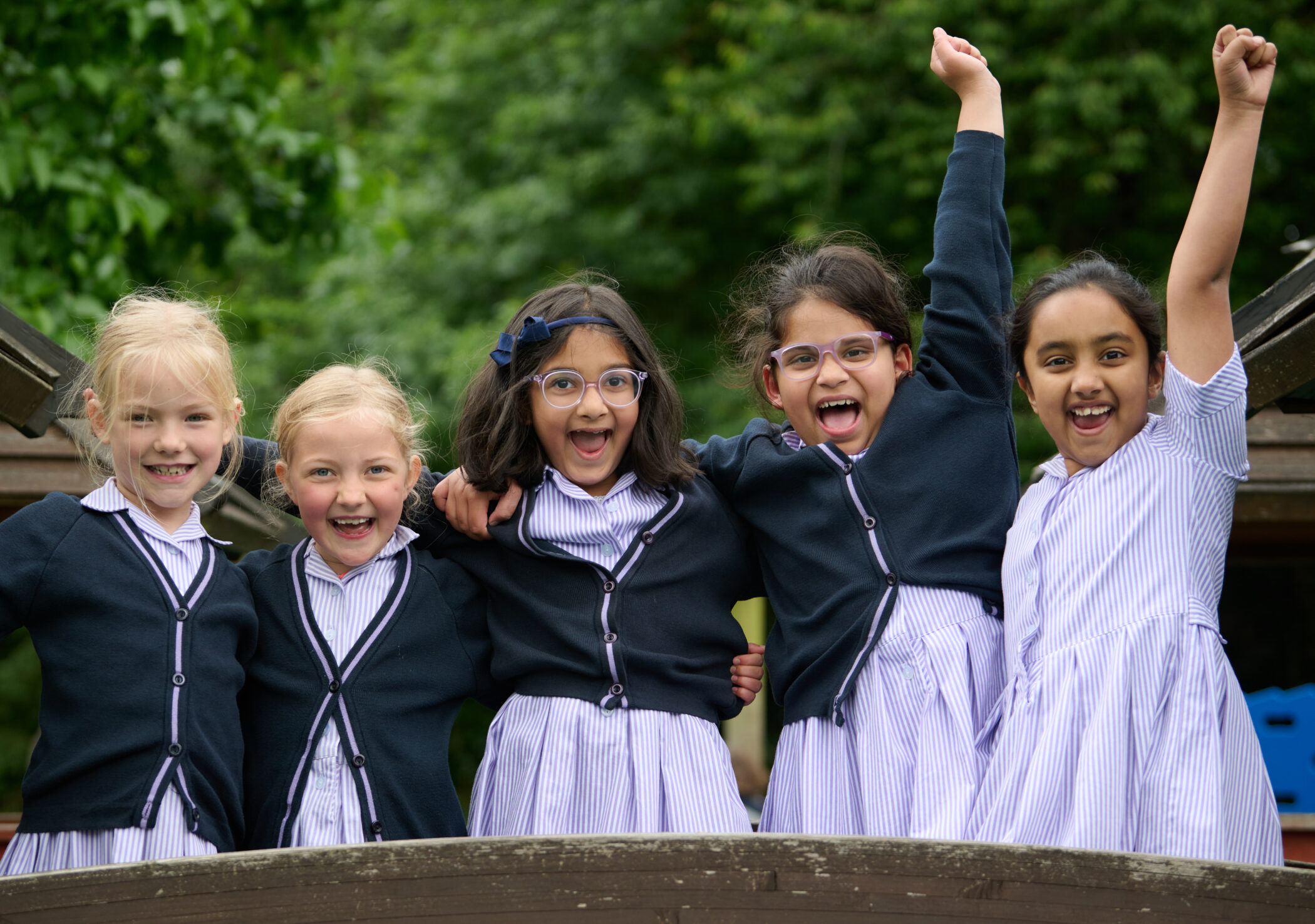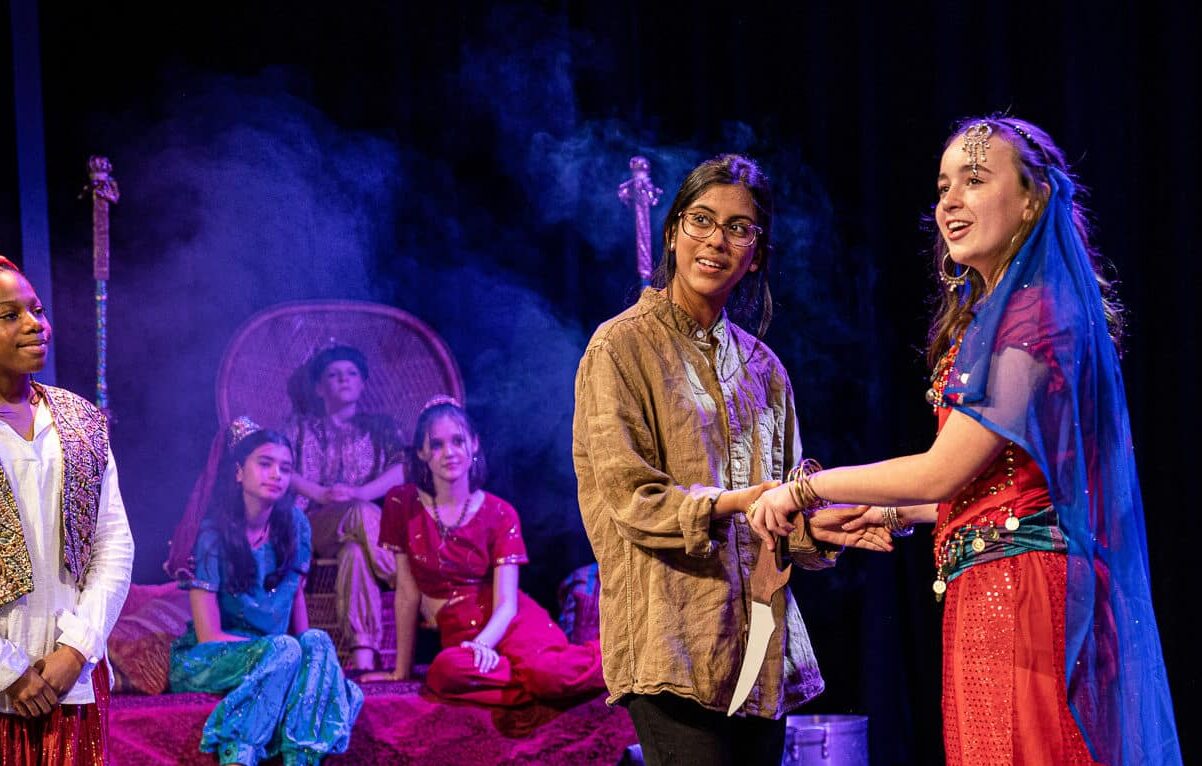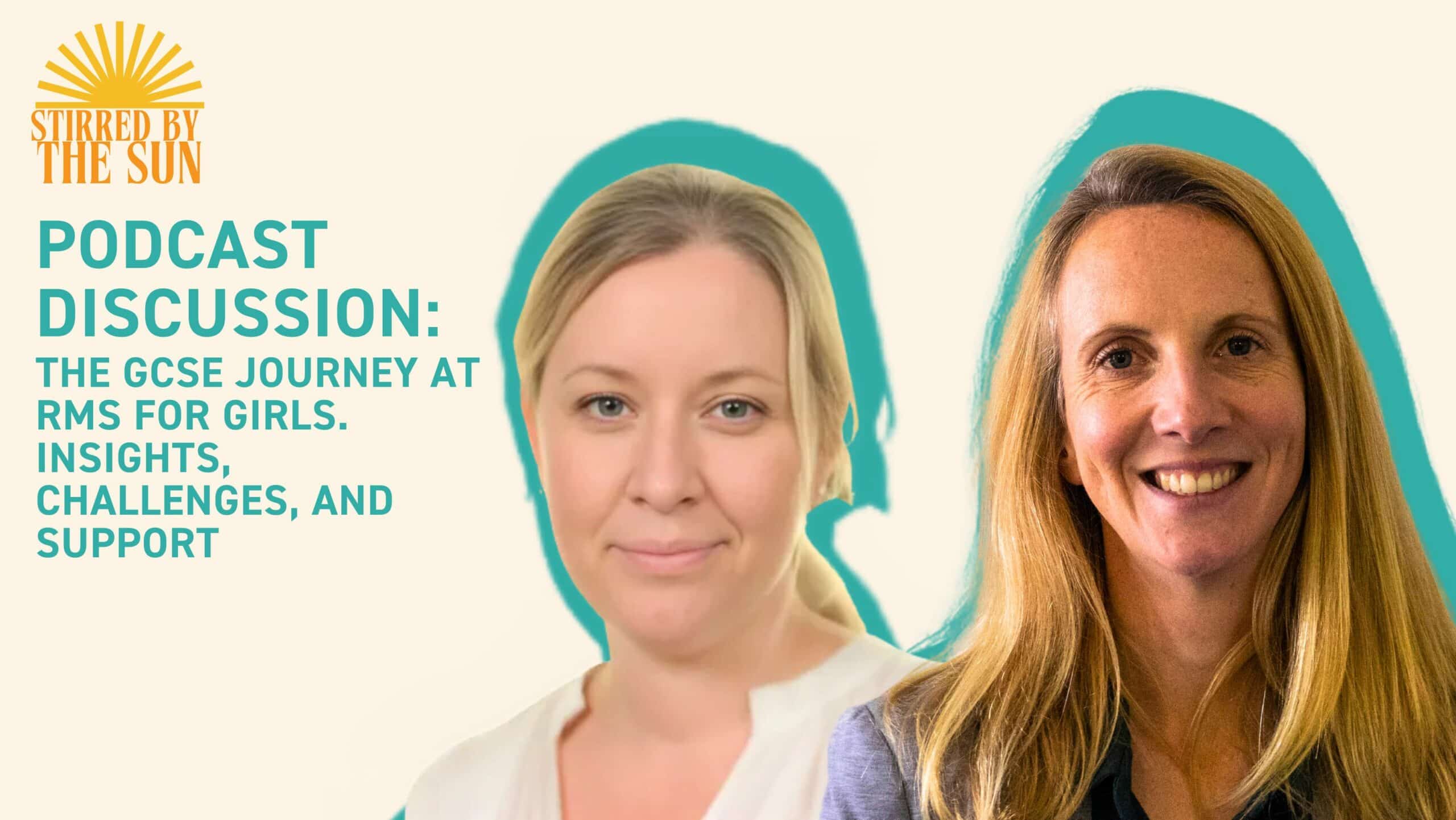In Episode two of our new podcast Stirred By The Sun, titled “The GCSE Years”, we explore the unique experiences and insights surrounding one of the most pivotal times in a student’s journey at RMS for Girls. Hosted by Headteacher Mr. Carson and Head Pupils Sarisha and Aleesa, this episode features a thoughtful conversation with Ms Hardy, Deputy Head of Academics, and Mrs Walker, a form tutor and geography teacher. Together, they share their perspectives on the challenges, growth, and lessons that come with the GCSE years. Whether you’re a current student, a parent, or considering joining the RMS community, this episode offers an authentic and reflective insight into the transformative journey of GCSEs at RMS.
Read a snippet of our interview with Ms Hardy and Mrs Walker below, and don’t forget to listen to the podcast on Spotify or directly through our website for the full experience.
Aleesa: Now we have Ms Hardy, who is our Deputy Head of Academics, and Mrs Walker, who has guided a whole GCSE class through geography and also served as a form tutor.
Sarisha: Ms Hardy, you’re the Academic Deputy at RMS, and you’ve experienced GCSE years as both a parent and a teacher. What do you think we haven’t heard so far this afternoon that you’d like to share?
Ms Hardy: You’ve all been amazing, and honestly, I need to get you to do more of the talking for me!
I think the key thing is that GCSEs are just a chapter in life. They’re literally just a moment. They’re significant in the sense that, for many students, it’s the first time they’ll be assessed on such a large scale, especially if they didn’t sit 11+ exams or SATs.
In that moment, it can feel like everything, and it means everything. I resonate with what was said earlier—it’s intense while you’re in it—but it really is just one chapter. There’s light on the other side, and life continues beyond it. GCSEs are just one of many moments that shape who you are as a person, as an adult. I’ve realised how important it is to keep that perspective.
Aleesa: When you look back, it doesn’t seem as monumental. But if you weren’t focused and engaged at the time, you wouldn’t have made it through. It’s about balancing that importance in the moment while understanding it’s just a part of the bigger picture. Mrs Walker, as a tutor for Years 10 and 11, how do you see your role in supporting RMS students?
Mrs Walker: A form tutor’s role is really important. I see myself as a guide for the students, helping them navigate through a very busy and challenging period. There’s so much going on—different deadlines, places to be, and things to remember. I help them stay organised and ensure they’re on track.
A big part of my role is recognising when students are feeling stressed. Whether it’s a DT deadline, an NEA deadline, or a big test coming up, I can offer support—helping with homework, sitting with them in the classroom, or simply reminding them, as we’ve all said, that it’s just a chapter in their lives. I can’t even remember what I got in my Year 11 mock exam!
Another critical part of my role is communication with parents. We’re a team, supporting the student through these two years together.
Sarisha: Ms Hardy, Mrs Walker mentioned that GCSEs can feel distant for her now. What about you?
Ms Hardy: What do I remember about my GCSEs? I remember making a lot of mistakes! GCSEs were a time when I learned how to learn in a way I hadn’t before. I remember specific subjects and teachers more than the actual grades.
There were a couple of key lessons I learned that stayed with me. I discovered a lot about myself—what motivates me, what’s important to me—and how to (and how not to) manage my time.
GCSEs focused me. My results weren’t bad, but they gave me a drive and ambition that shaped my future. Beyond the grades, the most valuable takeaway was learning about work ethic, study habits, and personal growth. Honestly, I still have to check my certificates to recall my actual grades. They’re not what matters now—it’s the lessons I learned along the way.
Aleesa: If you could change something about the GCSE system, what would it be?
Mrs Walker: If I could magically change something, I’d scrap grades. Grades become an obsession—students focus on getting a specific number, like a grade 6 or a grade 9, and forget that they’re actually developing skills.
For example, in geography, I teach vital skills like essay writing, data analysis, and drawing conclusions. But all of that gets boiled down to one number, which adds so much stress. I’d prefer a system that assesses students’ individual skills—where feedback highlights their strengths in areas like data analysis or essay writing—rather than assigning a single grade.
As Ms Hardy said, my GCSE grades weren’t great, but they don’t matter. What matters are the skills I developed and have used throughout my life.
Mr Carson: That’s lovely to hear, Mrs Walker. What people might not know is that, in Britain, we’re unique in having such high-stakes exams at age 16. Most countries assess students later, at 18, or rely more on teacher judgments and verbal contributions from students to show learning. The 26-30 exams that these Year 11 students are going to take over a condensed period—the UK gets it wrong, in many respects. There are, however, people working with the Government discussing how we can change things in the medium to long term.
Ms Hardy: Don’t get me started! If I could wave a magic wand, I’d rip it up and start again. The GCSEs that we have today are important because that is the measure that we have. We work with our pupils to do the very best we can for them and to make sure they do the best they can.
The GCSEs we have today were designed in the 1980s, a time when the world was so different—coal was still a major energy source! These exams were developed by middle-aged advisors who weren’t even educators. The focus, the methods, and the ways students are assessed feel outdated.
We’re still asking students to sit in exam halls with pen and paper. That’s not reflective of life today. If I could change it, I’d create something dynamic that evolves with the times, emphasising skills like problem-solving, critical thinking, and technology use. I’d love you guys to be at the cutting edge of AI, for example.
If I had all the power in the world, it would look completely different.
Sarisha: We completely agree. There was a point in Year 11 where I felt we were just learning the mark sheet, as opposed to appreciating the content of the lessons or the skills we were being taught. I’m lucky that I didn’t lose the love for some of my subjects, but I did find it all very formulaic. I know RMS is evolving its GCSE offerings to provide more personalised options. Could you explain more about this?
Ms Hardy: RMS is all about individuality and helping each student find their own unique path. Since we can’t redesign the entire system, we’re working within it to offer more choice and personalisation.
We’re reducing the number of core subjects and expanding elective options. If a student wants to stick with the traditional core subjects, that’s great! But if they’d prefer to drop a subject like English Literature or a third science in favour of something that plays to their strengths, they’ll have that option.
Giving students greater choice and ownership over their learning reduces stress, boosts happiness, and ultimately improves outcomes.
Listen to the full episode via Spotify. Subscribe to the Podcast to keep up to date with future episodes.

